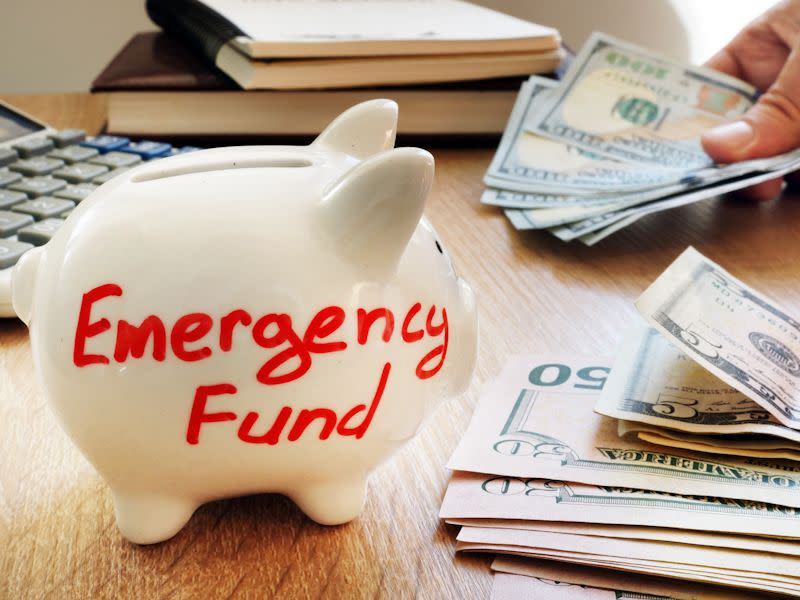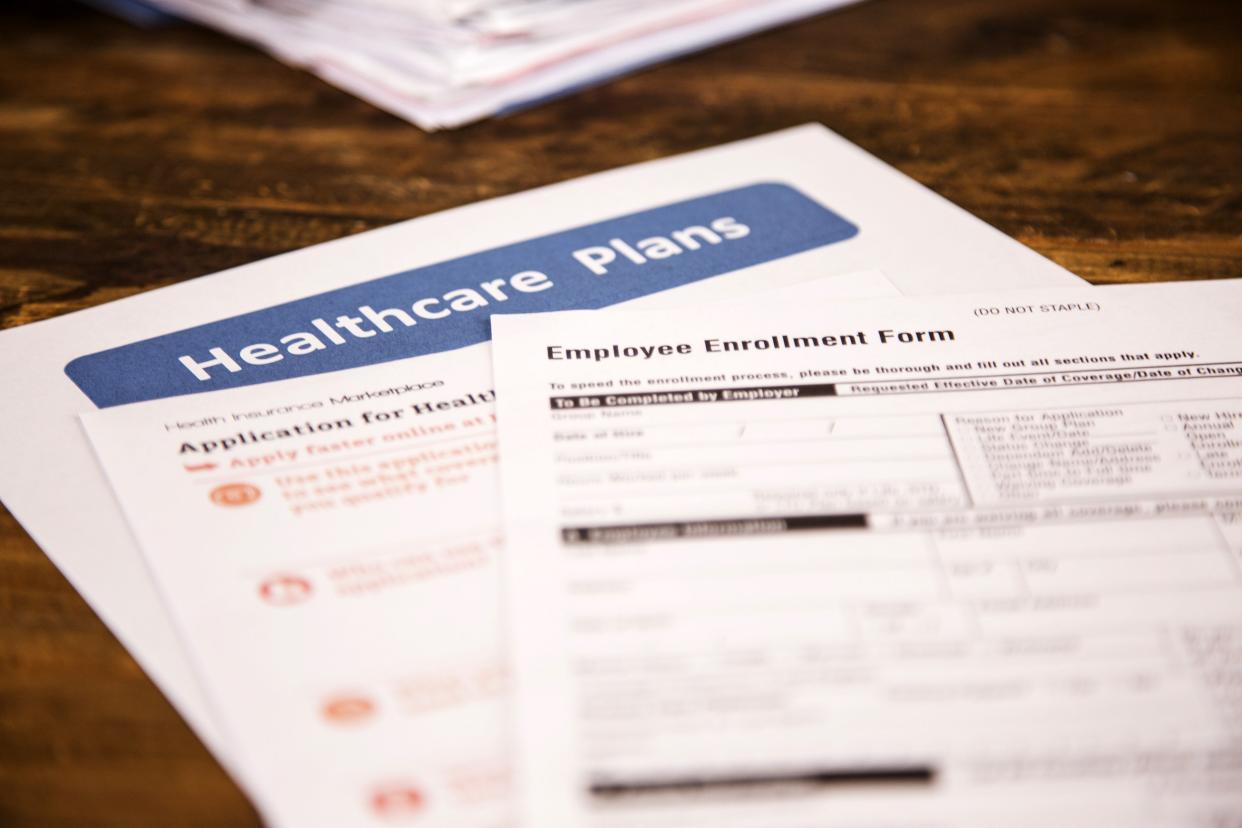How to Salvage Your Finances During Economic Uncertainty

If the current bout of inflation and threat of recession has undermined your financial security — especially coming after the stresses of the pandemic, its brief but historic levels of unemployment, and a long list of bankruptcies among businesses small and large — all is not lost. We asked financial experts, business owners, and other thought leaders for tips on rebuilding (or maintaining) financial security. Here's what they had to say; if you have other tips, let us know in the comments.
Related: Smart Ways to Get Through a Recession

One of the first steps to consider is to speak with a financial professional, says Willie Greer, founder of The Product Analyst. Greer says you don't have to go it alone. "If you have retirement accounts or investments, and are scared of how the fluctuations in the market can affect you, expert help is available," he says. "Most decisions regarding money can seem risky at this time, and you can benefit from a second or even a third informed opinion."
Related: Financial Lifelines to Help Small Businesses Stay Afloat

While money may be tight, one way to improve or simply maintain a healthy financial profile is to be mindful of your credit score. "The changes that can occur at this time will definitely affect your finances, but your credit score can be one less thing to worry about if you can make your payments on time," Greer says. "Even giving your creditor the minimum amount by the due date can make your financial situation less devastating. You don't have to let your debt pile up and your score be pulled down."
Related: Biggest Credit Score Mistakes to Avoid

If you're struggling to make payments on bills, you can always make your situation known to the various companies that you owe money to. "They can see if there's anything that can be done to help ease your burden or perhaps devise a management plan. Help is there when you need it," Greer says.

Do a deep dive into how much you spend each week, month, and year, says Julie Quick, a certified financial planner and owner of Cultivate Financial Wellness. "I like using sites like Mint to capture transactions, as this really holds you accountable. But starting a new Mint account will only pull 90 days of transactions — so put together an annual budget including expenses that you may not necessarily pay on a regular basis, such as auto insurance. Then prioritize spending and cut back on unnecessary expenses."
Related: How to Create a Monthly Budget

Call your credit card companies and ask them to lower your interest rates. "This will allow your payments to make a bigger dent in what you owe," Quick says. You might also look into zero-percent interest credit card transfers — but keep in mind that you typically have to pay off the full balance on such credit cards within a specified amount of time to truly benefit from the zero-percent offer.
Related: Tactics for Getting Out of Debt

If you've had to tap into emergency savings, focus on rebuilding that cushion when you're able and get back on the path toward financial security. "Or, if you were lucky enough to continue bringing in a paycheck over the last few months, perhaps these unprecedented times made you realize you could stand to build a bigger emergency fund," Quick says. "These funds should be in a high-yield money market account earning a competitive yield."
Related: Painless Ways to Grow Your Emergency Fund

Though interest rates are going up, consider whether they remain low enough to take out a mortgage or refinance. "Maybe you realized that you could stand to downsize and reduce your mortgage payment. Or perhaps a refinance will help reduce your monthly expenses. Of course, be sure you factor in all the other expenses associated with owning a home into your spending plan," Quick says.
Related: Refinancing Your Home — Should You or Shouldn't You?

Do you understand your various insurance plans? Do you have life insurance and disability insurance? "If anyone depends on your income to live, you likely need life insurance to provide for them should something happen to you," Quick says. "Likewise, death isn't the only threat to your ability to provide for your family. Should you become unable to work, a disability insurance policy would help to replace a portion of your income."
Related: Tips to Keep You from Buying Too Much Insurance

Typically, we file taxes after a given tax year is over, when it's too late to make withholding changes. This year, try asking your tax preparer to do a tax projection midyear to help determine if changes can be made to your withholdings. "Tax refunds from the IRS are basically the result of interest-free loans you've made to them all year long. The goal should be to get this [refund] amount as low as possible," Quick says. "If you find that you consistently receive large tax refunds, find out what you can do to reduce this and increase your take home pay now."
Related: Missing These Tax Credits and Deductions Could Cost You Thousands

Given all the uncertainty that's still out there, rather than paying down debt aggressively or making significant purchases, add any extra cash to your emergency fund. "You may need the money," Quick says. “Cash is king.”
Related: Things You Really Don't Need to Buy During a Recession

The stock market has been n something of a roller coaster ride. Make your portfolio recession-proof. "Spread your investments across different asset classes, such as equities, bonds, emerging markets, real estate investment trusts, and commodities," says Andrew Latham, managing editor of Supermoney. He also suggests investing in index funds, which spread your money across multiple companies, reducing risk. "Index funds make it easier to achieve your target allocations and help you avoid putting all your eggs into one basket. For example, for U.S. equities, you could invest across the entire Standard & Poor's 500 by buying shares of SPDR S&P 500 ETF Trust (SPY). Or, if you want to target tech stocks, you can buy Vanguard Information Technology ETF index fund."
Related: Industries That Would Benefit From a Recession

It's good to review your portfolio and investment choices regularly amid turbulent economic times. "You may not have to change anything, but it's good practice to check your portfolio is consistent with your financial goals and risk tolerance," Latham says.

Whether you lost your job, experienced a reduction in hours, or lost benefits such as a retirement match, taking on a side hustle can help rebuild financial security. "There are so many options for earning extra income right from home. For instance, you can become a virtual tutor through sites like Varsity Tutors or make up to $1,000 extra a month by pet-sitting and dog-walking through sites like Rover," money-saving expert Andrea Woroch says. "Other ideas include freelancing through Flexjobs or helping people in your community with yardwork or other errands through TaskRabbit. You can even make money selling your favorite recipes through CookingLight at $50 a pop."

If you aren't earning cash back when you go shopping for essentials, you're leaving money on the table. "Not only should you be checking your various credit cards to ensure you're maximizing rewards by opting into any bonus categories they might offer or special store deals, but download a cash back shopping app like Fetch Rewards," Woroch says. "The app is super easy to use. Just scan a picture of your various grocery, retailer, and restaurant receipts to start earning points, which you can later redeem toward free gift cards to popular retailers. These free gift cards can be used to offset other household essential purchases, helping you stretch your budget even further."

If it's possible, try preparing multiple meals at once and save some food for later in the week or month, rather than cooking each meal individually — maybe using a slow cooker. The point is to save money on utility bills while saving you time as well, says Julia Brookes, finance consultant at Now Loans.

You should be maximizing savings and reducing extra expenses no matter your financial situation. "While your gas, entertainment, and dining bills might already be lower right now, you can also consider other cuts, such as the cable bill or subscription services," says Mark Falter of the Mid-American Wealth Advisory Group. "Even if you find that the budget cuts weren't needed, you'll thank yourself later when your savings account has grown."
Related: Simple Ways to Save Money Every Day of the Month

One of the most important things many of us need now is some calm, so we don't make rash decisions. "Our actions during this time of upheaval will determine where our fortunes go from here, so make decisions from a place of reason and logic, not emotion," says Darryl Smith, a founding partner of Florida Car Accident Lawyer Team. "Stay calm, and use any stimulus received wisely, as now is not the time for splurge spending."

Like Cheapism's content? Make sure to follow us here.
